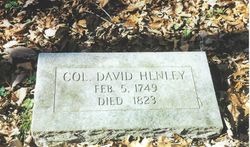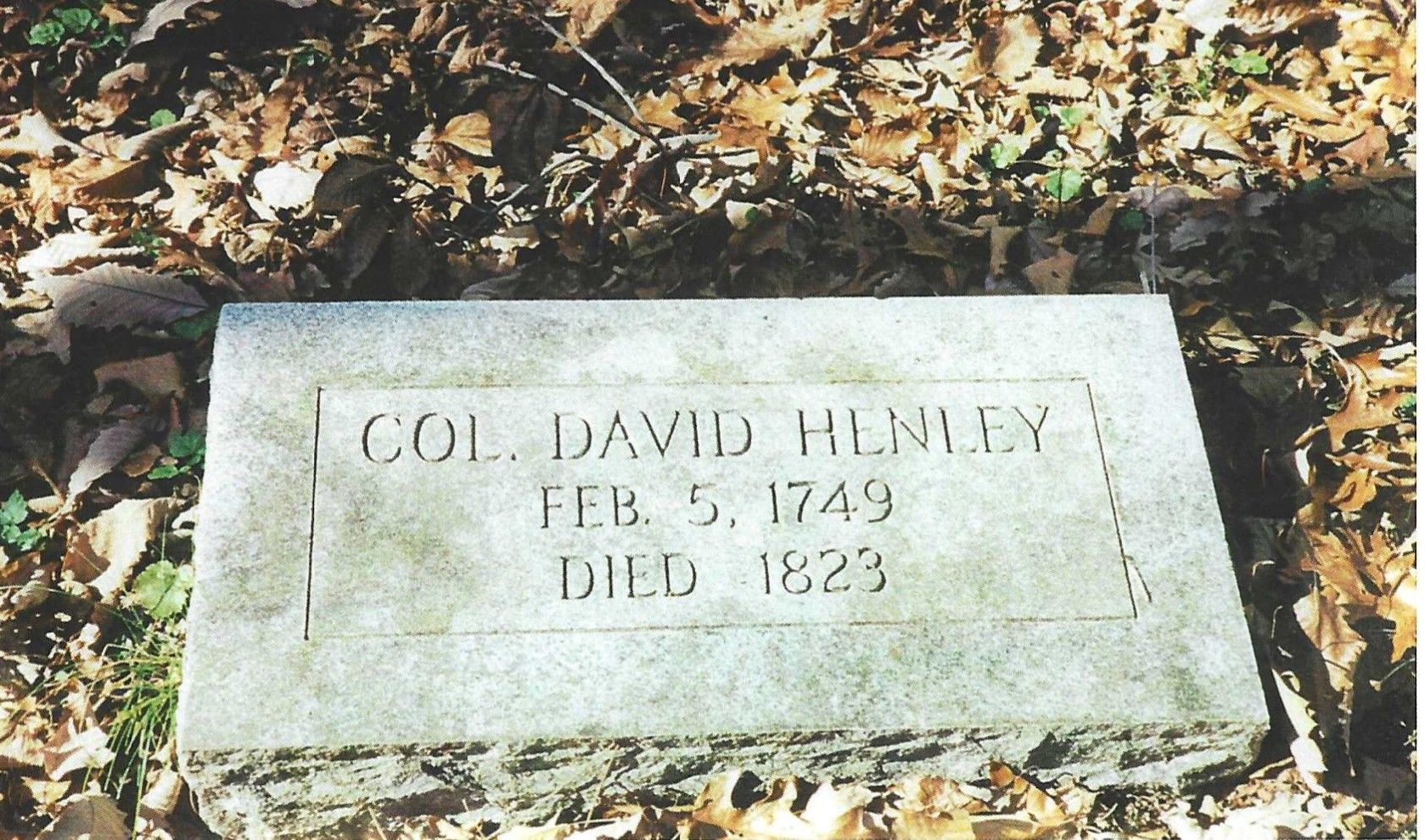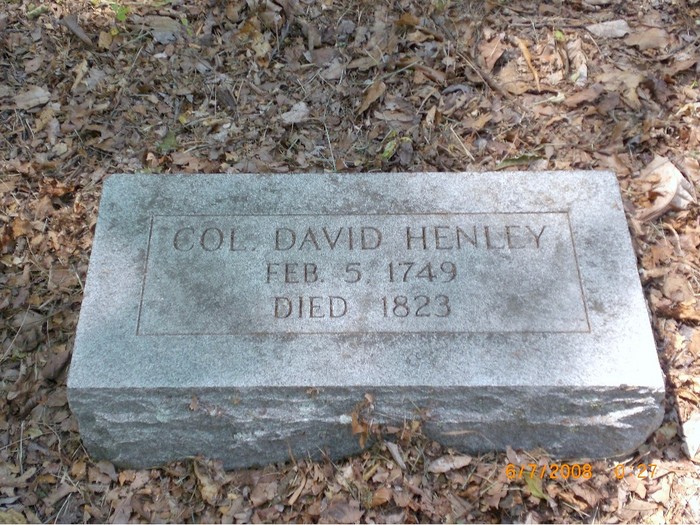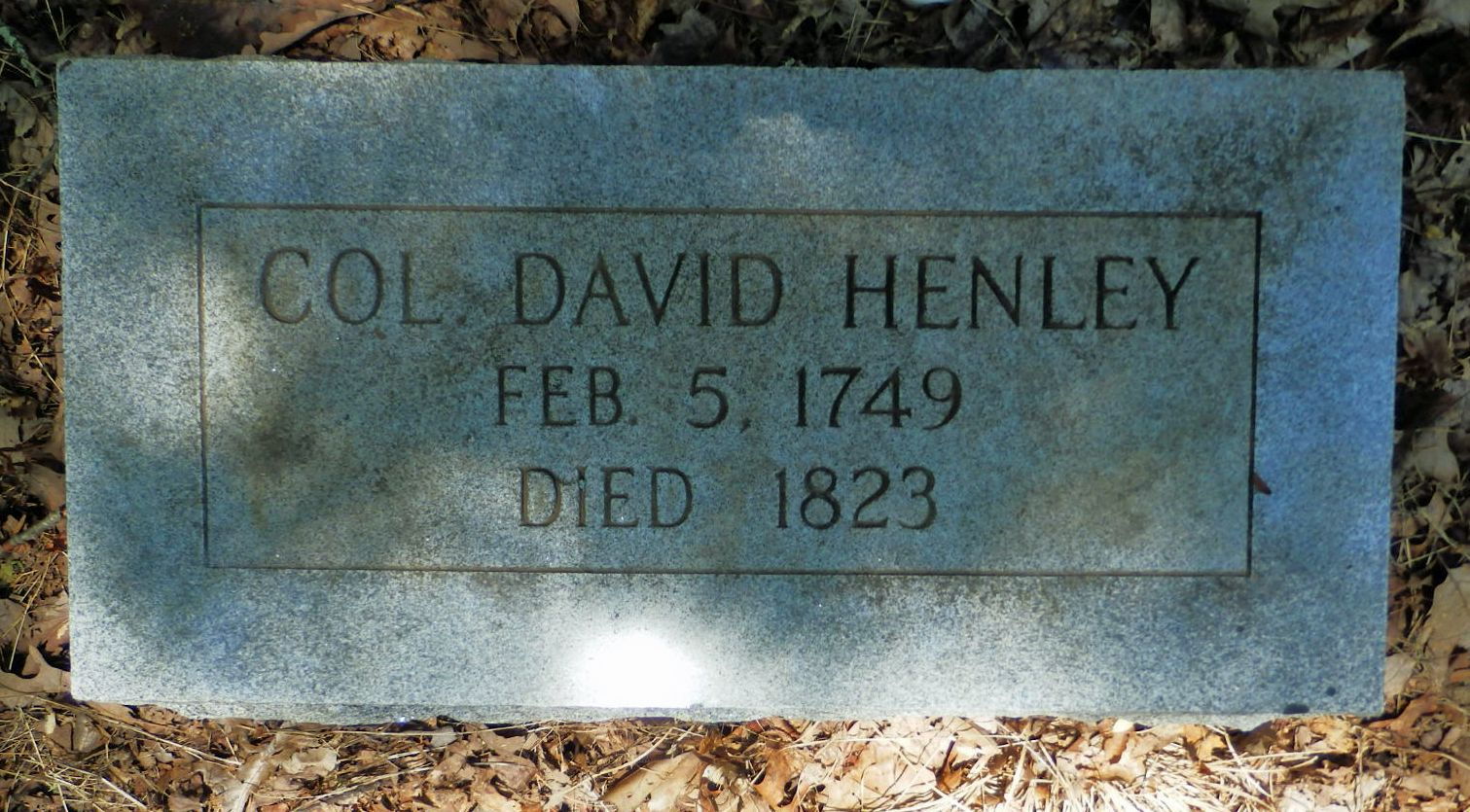Henley was born in Charlestown, Massachusetts, the eldest child of Samuel and Elizabeth Cheever Henley. On January 8, 1776, he set fire to Charlestown which was occupied by the British. In that same year, he served as major under General William Heath, and briefly as adjutant general under General Joseph Spencer. On January 1, 1777, he was promoted to Colonel of the Massachusetts Regiment. He was in command at Cambridge, Massachusetts, when the British troops that had been captured at Saratoga were brought there as prisoners of war. Henley pricked with his bayonet an insolent but unarmed British prisoner. Court-martial proceedings were held against him at Cambridge from January 20, 1778, to February 25, 1778; he was acquitted. British General Burgoyne challenged him to a duel, which was to take place in Bermuda. Henley accepted the challenge, but the duel never took place, probably due to the ongoing war.
General Washington selected him in November 1778 to be his spymaster and charged him with compiling information of British capabilities. He largely succeeded in that task. Henley retired from the Army the following year.
In 1793, Colonel Henley was appointed by President Washington to represent the United States as Agent of the War Department for the Southwest Territory, in Knoxville, Tennessee. In this capacity, he was Superintendent of Indian Affairs, as well as quartermaster and paymaster for locally stationed troops and militia. He was known to be something of a hothead but was also a strong law-and-order man. Tennessee's Constitutional Convention was held in his office at the corner of what is now Gay Street and Church Avenue in downtown Knoxville in 1796. He died in Washington, D.C., in 1823, while working as a clerk in the War Department. He was buried in the Georgetown Cemetery, but the grave location has been lost. This cenotaph was placed by his descendants in the family cemetery on the land that was originally his plantation; land that formerly held the Cherokee Nation capital of Chota. That land was inundated when the Tennessee Valley Authority dammed the Little Tennessee River behind the Tellico dam in 1979.
*****************************************************************************************************
"Henley, David (Feb. 5, 1749 - Jan. 1, 1823), Revolutionary War Officer, Commissioner for settling the Virginia claims, Agent for the Department of War in the Territory of the United States South of the River Ohio, was born in Charleston, Massachusetts. He was the eldest child of Samuel and Elizabeth (Cheever) Henley. He and his two brothers, Ezekial and Thomas, took part in the American Revolution. He was appointed Brigade-Major to General Heath, August 15, 1775; Deputy Adjutant General under General Spencer, September 6, 1776; Lieutenant- Colonel of the 5th Massachusetts regiment, November 1, 1776; Colonel of one of the sixteen additional regiments of the continental line, January 1, 1777. Upon the reorganization of the army, April 23, 1779, he was retired. Washington referred to Colonel Henley as 'an active and spirited officer.' "
---The French Broad-Holston Country, A History of Knox County, Tennessee, page 426.
*****************************************************************************************************
Col. Henley fought in several engagements during the Revolution, including the Battle of White Plains Oct. 28, 1776; Battle of Stillwater Sep. 19, 1777; Battle of Saratoga Oct. 7, 1777. He fought against the British general Burgoyne and, after the capture of Burgoyne and his men, Col. Henley was placed in charge of the prisoners.
--- Ramsey's Annals of Tennessee, page 656.
Henley was born in Charlestown, Massachusetts, the eldest child of Samuel and Elizabeth Cheever Henley. On January 8, 1776, he set fire to Charlestown which was occupied by the British. In that same year, he served as major under General William Heath, and briefly as adjutant general under General Joseph Spencer. On January 1, 1777, he was promoted to Colonel of the Massachusetts Regiment. He was in command at Cambridge, Massachusetts, when the British troops that had been captured at Saratoga were brought there as prisoners of war. Henley pricked with his bayonet an insolent but unarmed British prisoner. Court-martial proceedings were held against him at Cambridge from January 20, 1778, to February 25, 1778; he was acquitted. British General Burgoyne challenged him to a duel, which was to take place in Bermuda. Henley accepted the challenge, but the duel never took place, probably due to the ongoing war.
General Washington selected him in November 1778 to be his spymaster and charged him with compiling information of British capabilities. He largely succeeded in that task. Henley retired from the Army the following year.
In 1793, Colonel Henley was appointed by President Washington to represent the United States as Agent of the War Department for the Southwest Territory, in Knoxville, Tennessee. In this capacity, he was Superintendent of Indian Affairs, as well as quartermaster and paymaster for locally stationed troops and militia. He was known to be something of a hothead but was also a strong law-and-order man. Tennessee's Constitutional Convention was held in his office at the corner of what is now Gay Street and Church Avenue in downtown Knoxville in 1796. He died in Washington, D.C., in 1823, while working as a clerk in the War Department. He was buried in the Georgetown Cemetery, but the grave location has been lost. This cenotaph was placed by his descendants in the family cemetery on the land that was originally his plantation; land that formerly held the Cherokee Nation capital of Chota. That land was inundated when the Tennessee Valley Authority dammed the Little Tennessee River behind the Tellico dam in 1979.
*****************************************************************************************************
"Henley, David (Feb. 5, 1749 - Jan. 1, 1823), Revolutionary War Officer, Commissioner for settling the Virginia claims, Agent for the Department of War in the Territory of the United States South of the River Ohio, was born in Charleston, Massachusetts. He was the eldest child of Samuel and Elizabeth (Cheever) Henley. He and his two brothers, Ezekial and Thomas, took part in the American Revolution. He was appointed Brigade-Major to General Heath, August 15, 1775; Deputy Adjutant General under General Spencer, September 6, 1776; Lieutenant- Colonel of the 5th Massachusetts regiment, November 1, 1776; Colonel of one of the sixteen additional regiments of the continental line, January 1, 1777. Upon the reorganization of the army, April 23, 1779, he was retired. Washington referred to Colonel Henley as 'an active and spirited officer.' "
---The French Broad-Holston Country, A History of Knox County, Tennessee, page 426.
*****************************************************************************************************
Col. Henley fought in several engagements during the Revolution, including the Battle of White Plains Oct. 28, 1776; Battle of Stillwater Sep. 19, 1777; Battle of Saratoga Oct. 7, 1777. He fought against the British general Burgoyne and, after the capture of Burgoyne and his men, Col. Henley was placed in charge of the prisoners.
--- Ramsey's Annals of Tennessee, page 656.
Family Members
Advertisement
Records on Ancestry
Advertisement









